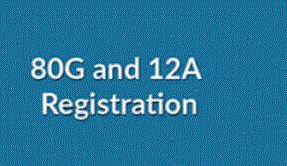 Confirming that India’s so-called POEM regulations — which are meant to ascertain the residential status of companies and use it to curb tax avoidance — will take effect from April 1, the Central Board of Direct Taxes (CBDT) on Tuesday issued the final guidelines in this regard. While the draft Place of Effective Management rules issued in December 2015 had caused a stir in the industry for being out of sync with transnational business realities (under pressure from businesses, Budget FY17 deferred POEM activation by one year), the new draft narrowed the scope of the tool and sought to allay most concerns of the investor community about its potential improper use/misuse.
Confirming that India’s so-called POEM regulations — which are meant to ascertain the residential status of companies and use it to curb tax avoidance — will take effect from April 1, the Central Board of Direct Taxes (CBDT) on Tuesday issued the final guidelines in this regard. While the draft Place of Effective Management rules issued in December 2015 had caused a stir in the industry for being out of sync with transnational business realities (under pressure from businesses, Budget FY17 deferred POEM activation by one year), the new draft narrowed the scope of the tool and sought to allay most concerns of the investor community about its potential improper use/misuse.
The CBDT has made it clear that POEM’s intent is not to target Indian multinationals, which have legitimate business activities outside India, but to pin down shell companies and firms created for retaining income outside India although the real control is exercised from India.
In what would reduce the chances of an assessing officer invoking the POEM provision without proper evaluation, the new rules state that she will need approval of a three-member collegium of her senior officers for triggering the test. Also, it has now been clarified that POEM guidelines won’t apply to companies having turnover or gross receipts of Rs 50 crore or less in a financial year. The regulations, the CBDT said, would apply for assessment year 2017-18 (FY17) and further.
“The guiding principles issued by the CBDT seeks to address some of the practical issues which could arise in application of the POEM test. The guideline strikes the right balance between providing certainty to taxpayers as well as ensuring that offshore companies with no substance or activities, which are controlled from India, are subject to Indian tax jurisdiction,” Rajendra Nayak, tax partner, EY India, said.
The POEM principle — which has found traction with tax authorities in capital-exporting countries and the OECD — was included in India’s I-T Act via the Finance Act, 2015 with the express purpose of discouraging the creation of shell companies with Indian shareholders in foreign jurisdictions to avoid tax residency in India. If a company is treated as resident in India, its worldwide income is taxable here, while only the India-sourced income of foreign companies is taxed. Although the tax rate on foreign companies is higher (40% versus the marginal rate of 30% for domestic firms), subjecting worldwide income to taxation could potentially increase the tax liability of many MNCs with Indian stakeholders. In fact, the real reason behind POEM is the tax department’s intent to curb corporate structures allowing passive foreign income — royalty, dividend, capital gains, interest income and the like — of firms incorporated in foreign countries with Indian ownership, escaping the tax net here. Tuesday’s draft, analysts said, gives further guidance on “active business outside India” test especially with respect to determination of passive income, total asset base, number of employees and payroll expenses in India and outside.
The new norms provide that if board of directors delegates authority to make key management decision/commercial decision to the promoter or strategic/legal/ financial advisors, the place of effective management will be the place where such persons makes those decisions.
Rakesh Bhargava, director, Taxmann, said: “In the final guidelines the CBDT has provided adequate safeguards to ensure that POEM guidelines does not become an oppressive tool in the hands of revenue to harass genuine assessees. Now, assessing officer can ascertain the residential status of foreign company on the basis of POEM guidelines only after taking two-stage approval; first approval is required before initiating any proceedings and second approval is needed before giving any final finding on residential status of foreign company.”
Giving additional clarifications, the CBDT said the decisions made by shareholder on matters which are reserved for shareholder decision under the company laws are not relevant for determination of a company’s POEM. However, the circular added, the shareholder’s involvement can, in certain situations, turn into that of effective management. “Therefore, whether the shareholder involvement is crossing the line into that of effective management is one of fact and has to be determined on case-to-case basis only,” the circular said.
Furthermore, the guidelines stressed that day-to-day decisions taken by junior or middle management of a company wouldn’t be taken into account for determining POEM. However, in certain situations where the person responsible for operational decision is also the one responsible for the key management and commercial decisions, it will be necessary to distinguish the two type of decisions and assess the location where the key management and commercial decisions are taken.




